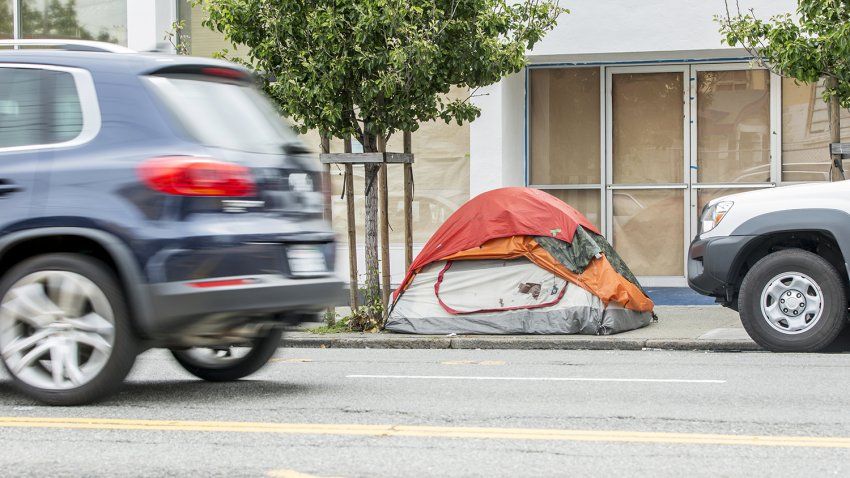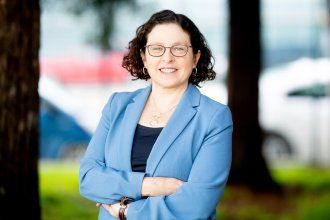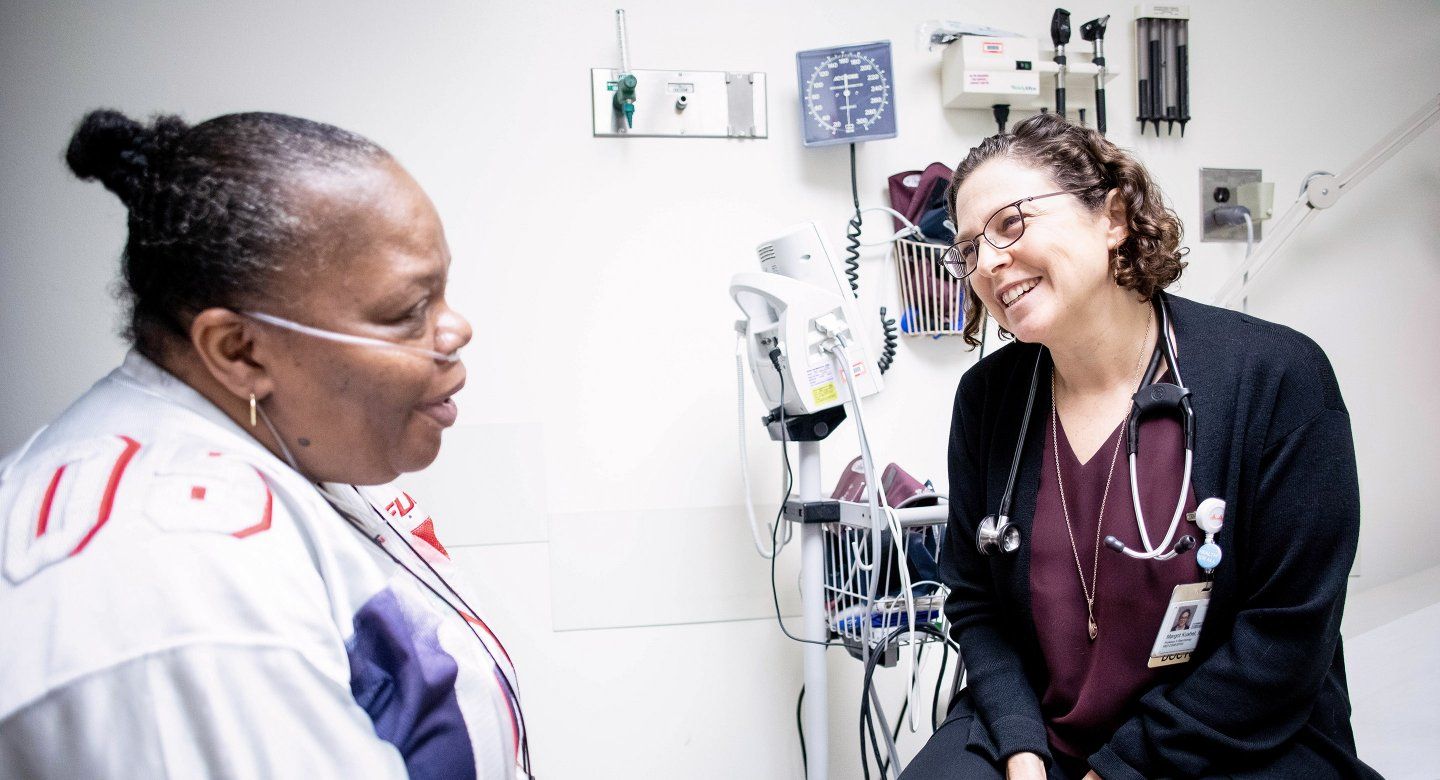New Benioff Homelessness Initiative to Turn Research Into Action
When Margot Kushel, MD, was a medical resident at Zuckerberg San Francisco General Hospital in the 1990s, she saw firsthand how homelessness devastated her patients’ health. As Kushel addressed their immediate health needs, she also sought to change the system responsible for their lack of housing, which was a crucial underlying cause of their health problems. Thus began Kushel’s two decades of work examining and advocating for evidence-based solutions to homelessness, including permanent supportive housing models.
A recent $30 million gift from Marc and Lynne Benioff will advance this work by launching the UCSF Benioff Homelessness and Housing Initiative. This landmark gift for the first-of-its-kind initiative aims to decrease homelessness by rigorously examining and evaluating what is known about homelessness and answering unresolved questions about effective intervention strategies. Most important, the initiative will work to translate policies into action.

A homeless encampment on a San Francisco sidewalk. Photo by Getty Images
Kushel will direct the new initiative as part of the UCSF Center for Vulnerable Populations (CVP), which she already leads. The initiative will partner with the community to build a knowledge base of rigorous, research-driven solutions; amplify the voices of people who have experienced homelessness; train the next generation of homelessness researchers; and serve as a resource for policymakers and communities that are working to align health and housing systems. Joshua Bamberger, MD, MPH, adjunct professor of family and community medicine at UCSF, will be the initiative’s associate director.
Kushel spoke about the initiative’s role in preventing and ending homelessness.
How is this new initiative a game-changer?

Margot Kushel, MD, will lead the UCSF Benioff Homelessness and Housing Initiative.
This will not be business as usual or research in the way that many people might think of it.
This initiative gives us the opportunity to work collaboratively with our community, meaning people who are or have been homeless and people and organizations who do the hard work every day of trying to end homelessness. We think that our biggest value-add is going to be in the interface between health and housing because that's our expertise. Our goal is to amplify the work of others who are doing high quality work, and we hope they will do the same for ours.
We’ll collaborate with policy makers and people who run health systems at the local, state, and federal level to answer the questions that they haven't had the resources or the time to answer and work to translate our findings into effective policies.
How, specifically, will this funding be used?
The conversation needs to change so policymakers and the general public recognize that we have a road map to end homelessness. To do that, we’ll focus on assembling the evidence: what works, and why we know it works; examples of effective programs that need replication; the impact of race, and other factors. We will create web-based resources – where we will provide ample evidence of what works to end homelessness – for anyone to use. Our work is geared toward creating change, and we really want to democratize this process.
Working with our partners in government and in community-based programs, we’ll find out what questions they have, and using rigorous but rapid research, we’ll seek answers.
We will convene people from different sectors: UCSF, people who have lived through homelessness, people who work on programs, so they can learn from one another. We will train speakers – people who are homeless, health care providers, and others – who can bring evidence and data to life through their stories as they educate policymakers. We will offer information and resources to the staff who work with policymakers.
Another goal is to train people who want to go into this line of work, who want to prepare themselves to be able to answer these types of questions and translate what they do into policies and practice. We will have resources to write policy briefs that explain the evidence and the rationale behind it, to move the policy conversation forward.
What do we already know about homelessness and affordable housing?
The primary cause of homelessness is the desperate shortage of affordable housing. For most people, affordable housing alone ends homelessness. For others who have certain disabling conditions, such as significant mental health or substance-use disabilities, we know that Permanent Supportive Housing, or PSH [subsidized housing with voluntary services], delivered according to Housing First principles, can house the vast majority of people with chronic homelessness. New approaches are needed for the small group of people with chronic homelessness who do not succeed in PSH – strategies that allow people who don’t thrive in PSH to live in the community successfully.
How have you seen your research translate into real-world action?
There are many examples. Back when Permanent Supportive Housing began, it was pretty revolutionary. The idea of giving people housing without preconditions for sobriety or mental health care was a reversal of many years of prior policies. PSH, which has now been federal policy for many years, came about through collaborations between the health and housing sectors. It was brought to scale and became federal policy through concerted activism that was guided by research that demonstrated the program’s success.
On a smaller scale, my HOPE HOME study, which is funded by the National Institutes of Health, is a research project on homeless adults in Oakland. The data from HOPE HOME has helped guide investments toward ending homelessness. Organizations like Kaiser Permanente have cited the work we’ve done here and have made very large recent investments toward ending senior homelessness. Additionally, there have been several bills in California that have passed, or are being considered, to address senior homelessness that were inspired by our work.
How will this initiative help those currently working to end homelessness?
Since this initiative was announced, we’ve had a lot of people reach out – people who work in organizations or work setting policies are sending us the questions that they need answers for in order to do their work better.
We know that the way to end homelessness is by vastly expanding deeply affordable housing. There is no question about that, and we don’t need to research that. We need to take action to achieve it. We need to tell the story of how crucial affordable housing is to health.
We need to figure out how we can help the public understand that homelessness, at its heart, is a problem of affordable housing.
Why not just fund housing?
We’ve heard from people asking, “Why isn’t this money going into housing?” We hear that concern, and we recognize that concern. We believe that ending homelessness is urgent, important, and is going to require solutions that are on the order of billions of dollars nationally.
We need to make sure that this money helps get us to policies that will actually end homelessness on a large scale, and that it will get us to policies that are aligned with the needs of the communities we’re serving.
What are some of your hopes and goals for this initiative?
One of the things we hope to do is decrease the emotion in some of the conversations about homelessness. Sometimes people’s responses to homelessness are driven by fear, and often fear is driven by a lack of familiarity or a lack of understanding.
I really hope that by working with all members of the community, we can help people understand the roots of this crisis and the path to a solution. By addressing people's fears, we hope to tackle some misconceptions and myths that surround the reality of people living with homelessness.
I think there’s a lot of misunderstanding about what creates homelessness, why people are homeless, and what their needs, wishes, and experiences are. I have the privilege and honor to be a physician for people experiencing homelessness and to conduct research studies for years alongside people who are experiencing homelessness.
Everyone needs to be in on the solutions. We can all agree that this crisis is unacceptable and that we are better than this, but where I think we may disagree is on how we get there [to ending homelessness]. Hopefully, by giving people a voice in the process, together we can guide the solutions.
